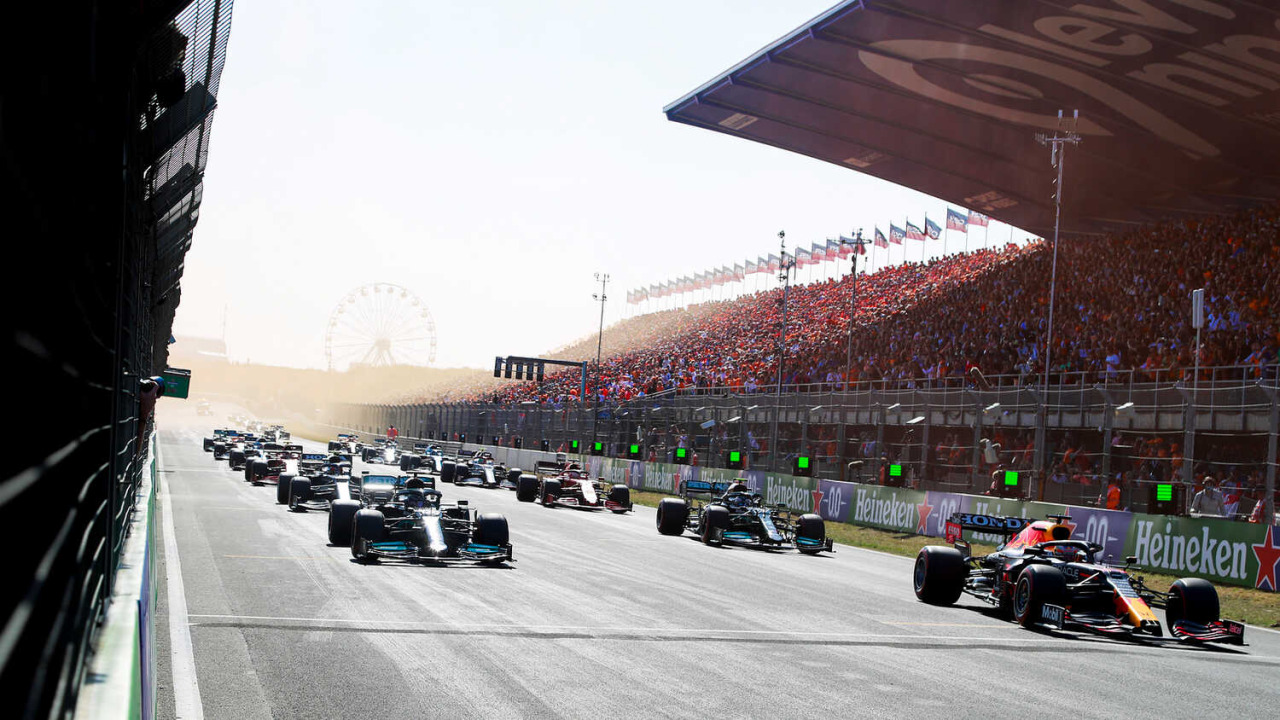ब्लॉग - Formula 1 Teams Rating
Formula 1 Teams Rating
One of the disadvantages of the current F1 system is that the team rating is not changing so dynamically when bad-rated teams build a good car and have good results during the season. Let me explain how it works now.

Every qualification and every race gives rating points based on the results and then all team ratings are decreased to preserve the 1000 average team ratings. The qualification gives 10% of the rating points compared to the races.
Current System
The basic system calculates rating points (Rat) based on position (P) as follows:
Rat = 30 - P
That means the winner gets 29 pts, the driver in the 10th place 20 pts, and the 30th driver gets 0 for his team.
Then there are some small adjustments:
9th position … +0.5 pts (total +21.5 pts)
8th position … +1.0 pts (total +23.0 pts)
7th position … +1.5 pts (total +24.5 pts)
6th position … +2.0 pts (total +26.0 pts)
5th position … +2.5 pts (total +27.5 pts)
4th position … +3.0 pts (total +29.0 pts)
3rd position … +4.0 pts (total +31.0 pts)
2nd position … +5.0 pts (total +33.0 pts)
1st position … +7.0 pts (total +36.0 pts)
Then we count the sum of the team ratings (SUM) and calculate coefficient © as follows:
C = 15000 / SUM
This coefficient is then used to recalculate team rating (NewRat) which would lead to an average rating of all teams equal to 1000.
NewRat = Rat * C
After this small adjustment is done to teams with ratings under 500 and 2 previous steps are repeated to get the average team rating of 1000.
Changes for Season 45
There are a few cornerstone goals:
- Reward weak teams for results which are great from their point of view. Something like when real-life Williams or Haas would end in the top half of the race (equal to the top 15 results in the game).
- Reward average or worse teams for results which are great from their perspective. Something like when Aston Martin or Alfa Tauri got the top 6 results in real F1 (equal to the top 10 results in the game).
- Reward average and bit better teams for results that are great from their perspective. Something like when Ferrari or McLaren gets to the podium.
- Limit the rating gains for top teams. When Mercedes win a race that is far less valuable than a win by Red Bull or Ferrari. Thanks to their long-time dominance.
- Change cannot shuffle team ratings. Teams with better results long term must have a better rating. But the difference between the top teams' rating and the bottom teams' rating should be smaller.
Details of the Change
In order to fulfill the first 3 goals there will be additional bonuses:
- If a team rating is 750 or worse and their driver gets the top 15 result team will get a bonus of +5.0 pts to the rating
- If a team rating is 900 or worse and their driver gets the top 10 result team will get a bonus of +5.0 pts to the rating
- If a team rating is 1100 or worse and their driver gets the top 3 result team will get a bonus of +10.0 pts to the rating
In addition to that teams with high ratings will get point gains lowered:
- If a team is above a 1700 rating then the points they get are lowered by 20% (multiplication with coefficient 0.80)
- If a team is above a 1600 rating then the points they get are lowered by 15% (multiplication with coefficient 0.85)
- If a team is above a 1500 rating then the points they get are lowered by 10% (multiplication with coefficient 0.90)
- If a team is above a 1400 rating then the points they get are lowered by 5% (multiplication with coefficient 0.95)
- If a team is above a 1300 rating then the points they get are lowered by 2% (multiplication with coefficient 0.98)
Examples
- If a team with a rating of 700 gets 3rd place in the race they will get base +31.0 pts and additional +5.0 +5.0 +10.0 pts which means +51 pts for this one race (plus points for the result of the second driver). *
- If a team with a rating of 1750 gets 1st and 2nd place they will get base +69 pts (+36 +33) multiplied by the coefficient 0.8 and that means +55.2 pts. *
- If a team with a rating of 1550 gets 1st and 2nd place they will get +69 pts multiplied by the coefficient 0.9 which is +62.1 pts. *
- If a team with a rating of 1750 gets 5th and 6th place they will get +53.5 pts multiplied by the coefficient 0.8 which is +42.8 pts. *
- In the old system the winning but the weaker team from example 3 would gain 15.5 pts on the top team from example 4, while in the new system, the difference would be almost 20 pts.
* deduction to maintain an average coefficient of 1000 will be applied after.
Conclusion
The new system is not a revolution, and should not drastically change the system, but should help teams with low ratings do a good job close the gap to the top teams faster. In the long term, it should make the gap between the ratings of bottom teams and top teams smaller, and that means a little smaller difference in sponsor income.
 Front Row Lockout in Hungary – Red Bull Leads the Grid!
Front Row Lockout in Hungary – Red Bull Leads the Grid!
 Curiosidades del motorsport que no sabías #2
Curiosidades del motorsport que no sabías #2
 De kop is er af bij de Nationscup
De kop is er af bij de Nationscup